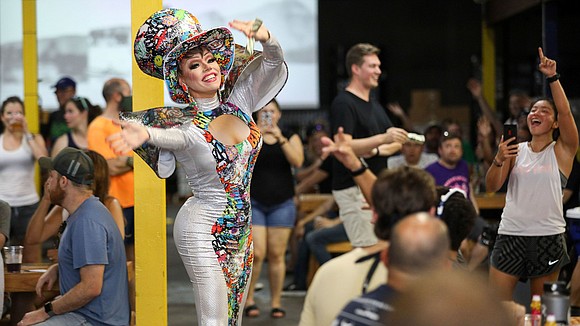Texas law banning some drag shows is unconstitutional, federal judge rules
CNN/Stylemagazine.com Newswire | 9/27/2023, 2:09 p.m.

Texas law banning some drag shows is unconstitutional, federal judge rules
Originally Published: 27 SEP 23 10:44 ET
By Shawna Mizelle, CNN/StyleMagazine.com Newswire
A federal judge in Texas declared on Tuesday that a state law that bans “sexually oriented performances” on public property and in the presence of anyone younger than 18 is unconstitutional.
Senate Bill 12 “impermissibly infringes on the First Amendment and chills free speech,” US District Judge David Hittner wrote in his ruling that blocked state authorities from enforcing the law.
The bill was signed into law by Republican Gov. Greg Abbott in June and went into effect on September 1. It states that “sexually oriented performances” are restricted on the premises of a commercial enterprise, on public property and in the presence of anyone younger than 18.
Without mentioning drag specifically, the law deemed sexual conduct as “the exhibition of sexual gesticulations using accessories or prosthetics that exaggerate male or female sexual characteristics.”
Hittner called SB 12 “substantially overbroad” and “unconstitutionally vague.”
“But even if SB 12 were not unconstitutionally vague, it would still fail due to it being an impermissible prior restraint on speech,” the ruling states.
Texas state Sen. Bryan Hughes, a Republican who sponsored the legislation, said he will to continue to fight for the legality of the bill.
“Surely we can agree that children should be protected from sexually explicit performances. That’s what Senate Bill 12 is about. This is a common sense and completely constitutional law, and we look forward to defending it all the way to the Supreme Court if that’s what it takes,” Hughes said in a post on X.
Brigitte Bandit, a drag performer and plaintiff in the case, said she was “relieved” by the injunction.
“My livelihood and community has seen enough hatred and harm from our elected officials. This decision is a much needed reminder that queer Texans belong and we deserve to be heard by our lawmakers,” Bandit said in a statement.
Efforts to restrict drag show performances have taken shape in many Republican-led legislatures across the country this year. Those who advocate for restricting the performances say they expose children to sexual themes and imagery that are inappropriate, a claim rejected by advocates, who say the proposed measures are discriminatory against the LGBTQ community.
Several of the new laws have been paused by courts.
In June, a federal judge temporarily blocked a Florida law that opponents claim targets drag shows. That measure allows Gov. Ron DeSantis’ administration to take away licenses from establishments if they allow children into an “adult live performance.” That same month, a federal judge ruled that a Tennessee law limiting the shows represented an “unconstitutional restriction on the freedom of speech.”
In July, a judge ordered a pause on a Montana law that bans drag performers from hosting children’s story hours at public libraries and bars “sexually oriented shows” on public property that can be seen by minors.
Sarah Warbelow, the legal director for Human Rights Campaign, said trans rights activists have been “vindicated” by the recent court decisions.
“That being said, these laws and bills that are being considered continue to have real harms as they impact LGBTQ people by putting them under a cloud of suspicion or engaging in allegedly inappropriate behavior – rather than recognizing that drag is a long standing tradition that has different types of performances for different audiences,” she told CNN.




